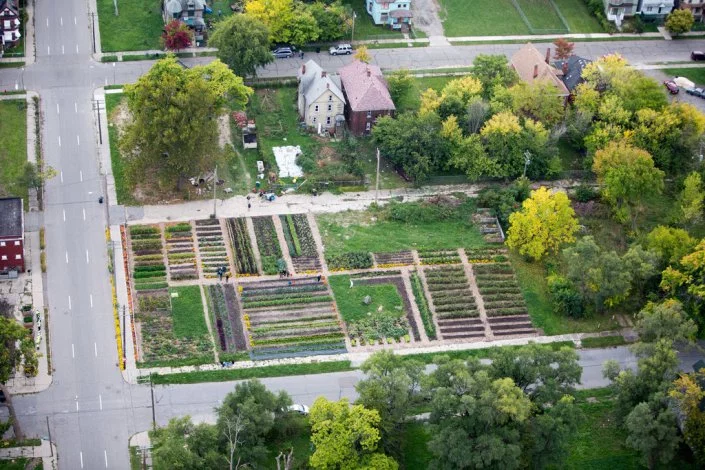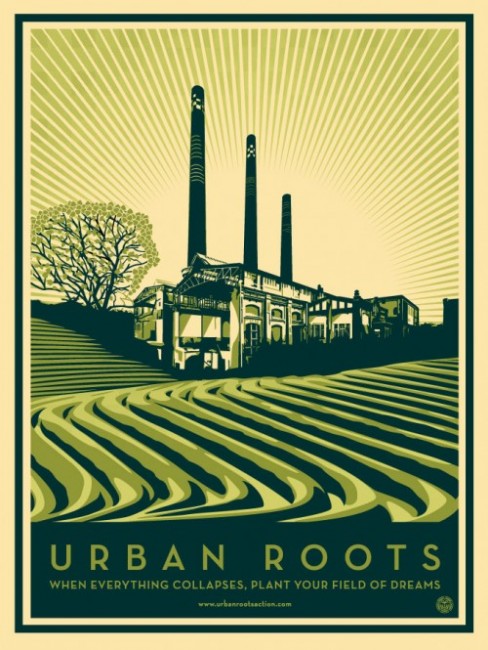Shattering Concrete: Urban Agriculture
Recently, I watched Urban Roots, a documentary on the urban agriculture movement in Detroit, Michigan. The film was released in 2011, just as the Motor City approached the height of its fiscal and governmental crisis. The state of Michigan assumed control of the city in 2012, and the city declared bankruptcy in 2013.
Amid the ruins of this once great American city, individuals and organizations attempt to reclaim and re-imagine abandoned spaces for the most fundamental and possibly transformative of human activities–farming. Large-scale urban gardening and agriculture might provide one model for Detroit (and other troubled urban areas) to reinvigorate its citizens and re-purpose its land.
Urban agriculture proponents tick off the positive impacts of such activity: environmental remediation, employment training, education, open space, job creation, food access, crime prevention, improved health, and community building. This final outcome might matter most for the future of a neighborhood, city, or even region.
By every measure, Americans’ sense of community is suffering from a stark decline. Robert Putnam documented this disheartening trend nearly two decades ago in his book, Bowling Alone. A recent Politico article linked social isolation to political rage. Americans are alienated and lonely.
So, how might something as simple–and comparatively mundane–as a neighborhood garden or an urban farm combat this?

An urban farm in Detroit. (Courtesy of Agricoltura Urbana)
A successful urban garden or farm requires an impressive degree of civic organization and effort: gathering people to clean, till, and seed a vacant lot; pressuring the municipal government for full access and ideally ownership of the parcel; convincing skeptical and even hostile residents that such an endeavor might benefit them; and, then maintaining the project after the initial headiness fades. All hard work.
Such grassroots action–if only at the level of a single city block–builds confidence, experience, and connections critical to local community and political efforts. Top-down government initiatives do not foster such personal and communal agency and empowerment.
An urban garden or farm gives residents an appealing neighborhood feature to show to visiting friends and family, a comfortable place to enjoy a pleasant afternoon, and a center to meet neighbors. Urban gardens or farms tell residents that that their neighborhood is worth caring about and fighting for. Namely, urban agriculture might begin to rebuild the civic pride lacking in so many communities throughout America.
Realistically, Detroit and other depopulated American cities will never resemble their prime, industrial selves, yet small acts–such as neighborhoods establishing community gardens–might re-thread a sense of civic pride and trust.
The urban agriculture activity captured in Urban Roots might help make Detroit and America great again.